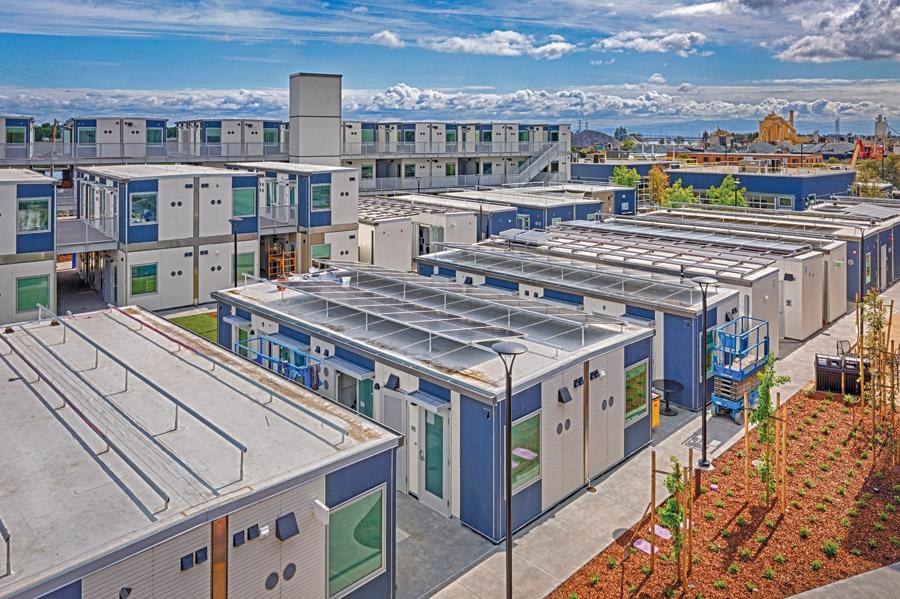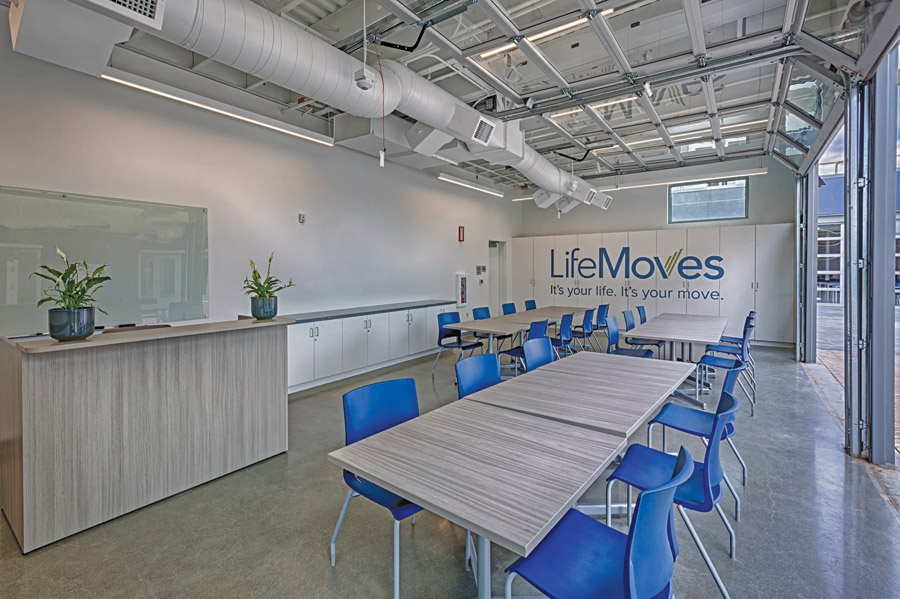County of San Mateo Navigation Center
Redwood City, Calif.
EXCELLENCE IN SAFETY AWARD, Award of Merit, Excellence in Sustainability, and Award of Merit, Government/Public Building
Submitted by: XL Construction
Owner: San Mateo County
Lead Design Firm/Structural Engineer: Office of Charles F. Bloszies
General Contractor: XL Construction
Civil Engineer: BKF
MEP Engineer: Meyers+Engineers
Landscape Designer: CMG
Subcontractors: ASI; Bradley; D-Line Constructors; EcoFire; Elevated; Maniglia; Rosendin Electric
At 108,900 sq ft, this state-of-the-art facility is a key component of San Mateo County’s plan to offer every unsheltered person a safe and dignified atmosphere to serve their needs as they transition to permanent housing. The goal is to achieve functional zero homelessness, meaning that anyone who desires shelter can access it through an array of county facilities and programs.
This supportive, interim housing facility provides 240 safe, private living units and intensive onsite support services.
Completed in May 2023, the modular project is the largest of its kind in California. The size and scope of the modular Navigation Center was a challenge in itself. All 131 modules were prefabricated in Los Angeles and shipped to the site. Intense coordination meetings were held with the module companies, MEPF trade partners and design team to ensure all MEPF connections, both underground and within the modules, were coordinated to specific dimensions and locations.

Photo by Marco Zecchin/Image Center
Driven by a 12-month schedule mandated by project funding through California’s Project HomeKey legislation, the construction team set an average of 15 modules or 6,000 sq ft per day. Typically for a project of this size and scope, construction would last 18-24 months. But the prefabricated modules allowed for construction 6-12 months faster than would have been possible using traditional construction methods. Site preparation was completed in parallel with module fabrication, shaving months off the schedule.
With prefabricated pieces weighing an average of 15,000 lb and stacked three stories high, plus 40,000 lb modular elevators, a project-specific plan for modular safety protocols was vital. Extensive meetings and training were held on proper procedures to rig, crane, lift and set down the modules, and a particular focus was placed on fall safety. The training paid off as even with the extreme weights of the modular pieces, there were no incidents of hazard or injury, or even a near miss. After nearly 95,000 worker hours, there were zero incidents or recordables.

Photo by Marco Zecchin/Image Center
Modular units were made entirely of a wood frame structure and were designed to support decks and walkways without needing to build separate structures and foundations.
These sustainable units are durable enough that they can be disassembled and reconstructed or repurposed. A sustainability manager helped the team implement a series of sustainable metrics and features, such as reducing outdoor water use through irrigation by 70% and cutting baseline indoor water use by 30.8%. A solar array will generate 60% site energy consumption, while the project will also achieve 75.9% energy savings by cost, including site-generated renewable energy. In addition to an 80% reduced parking footprint, 10% of parking is dedicated to electric vehicles. The project is also pursuing LEED Silver certification.



